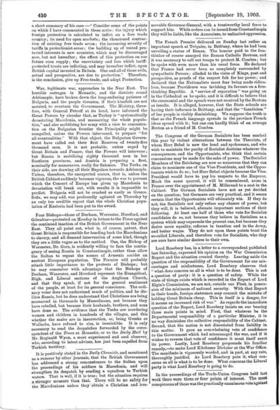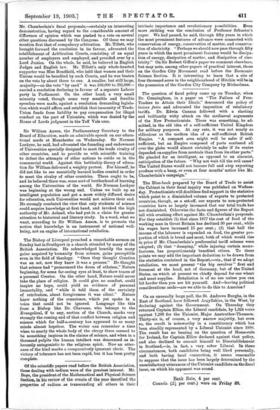In the proceedings of the Tra,de-Union Congress held last week
there were three or four points of interest. The most conspicuous of these was the practically unanimous vote against
Mr. Chamberlain's fiscal proposals,--certainly an interesting demonstration, having regard to the considerable amount of difference of opinion which was pushed to a vote on several other questions discussed by the Congress. Of these we may mention first that of compulsory arbitration. Mr. Tillett, who brought forward the resolution in its favour, advocated the establishment of Arbitration Courts, consisting of an equal number of employers and employed, and presided over by a Lord Justice. On the whole, he said, he believed in English Judges and English law. Mr. Tillett's only whole-hearted supporter was Miss Bondfield, who held that women and their Unions would be benefited by such Courts, and he was beaten on the vote by about three to one. A smaller, but still large, majority—on the vote "by card" it was 506,000 to 285,000— carried a resolution declaring in favour of a separate Labour party in Parliament. On the other hand, a very small minority voted, though some very sensible and forcible speeches were made, against a resolution demanding legisla- tion which would affirm and establish that immunity of Trade- Union funds from liability to pay compensation for illegal conduct on the part of Unionists, which was denied by the House of Lords judgment in the Taff Vale case.







































 Previous page
Previous page